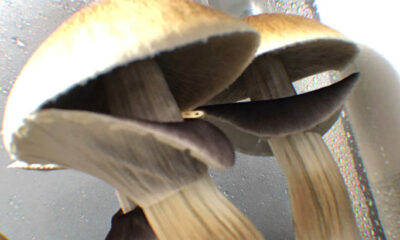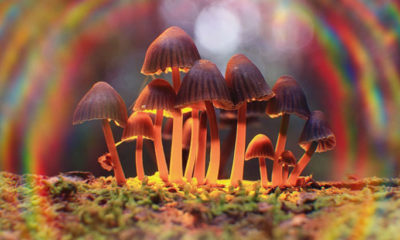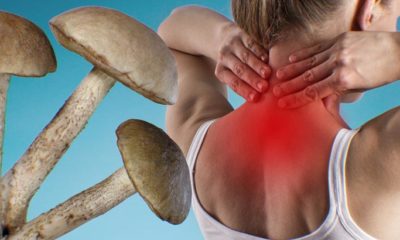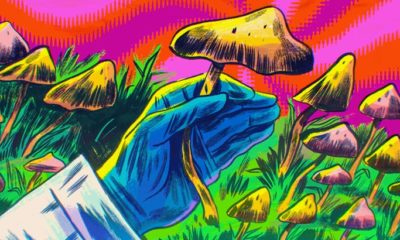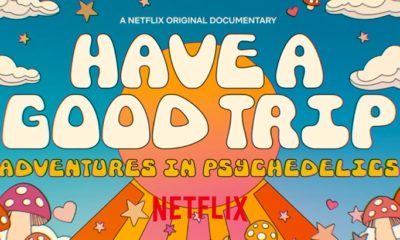Psilocybin Laws: A Country-by-Country Magic Mushrooms Legal Guide
Where Are Magic Mushrooms Legal? A Country-by-Country Guide
Should magic mushrooms be legal? Many jurisdictions have decided that yes, magic mushrooms should be legal.
In some countries, magic mushrooms are fully legalized. In other countries, magic mushrooms or their active ingredient psilocybin are decriminalized.
There’s a growing push to legalize magic mushrooms. Some countries are debating overturning decades-old psilocybin bans in favor of a policy of decriminalization or outright legalization.
In other countries, magic mushroom users are finding loopholes in existing laws, allowing them to enjoy magic mushrooms without worrying about being fined, charged, or even jailed.
In many countries, magic mushrooms are technically illegal, although these laws are loosely enforced. Law enforcement may have a laissez-faire attitude towards magic mushrooms, and it’s easy to openly purchase magic mushrooms, spores, or grow kits. This kind of de-facto legalization poses its own list of obstacles and concerns.
Magic mushroom laws can be complicated, and the situation is changing. Today, we’re exploring where shrooms are legal, decriminalized, or illegal.
What are Magic Mushrooms?
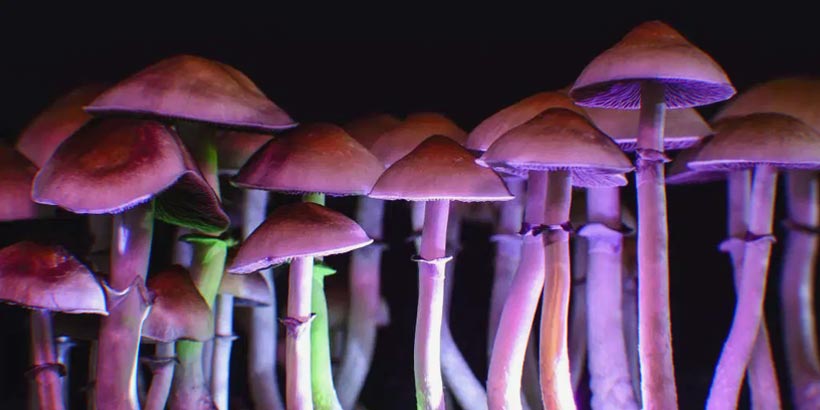
Magic mushrooms are a general term for any mushroom with hallucinogenic properties. These mushrooms can be found naturally. They grow on every continent except Antarctica.
The hallucinogenic effect comes from a natural chemical compound called psilocybin. Mushrooms that contain this compound are labeled as the Psilocybe genus. There are over 200 mushroom species in that genus.
Magic mushrooms are among the best-known psychedelics available today. Growing research has linked magic mushrooms to certain benefits – particularly with treating psychological conditions.
A 2016 double-blind study by researchers at Johns Hopkins University, for example, found that 80% of participants showed clinically significant decreases in depressed mood and anxiety after six months of magic mushroom usage.
Indigenous peoples on virtually every continent have used magic mushrooms in traditional medicine for centuries. They have historic medicinal, cultural, and traditional uses.
According to a 2013 study, there are over 30 million psychedelic users in the United States.
Why Are Magic Mushrooms Banned?
In 1971, the United Nations banned psilocybin and magic mushrooms with the passage of the Convention on Psychotropic Substances.
The popular of psychedelic substances was rising. People worldwide were taking psilocybin mushrooms, LSD, and mescaline.
This convention was a follow-up to the United Nation’s Single Convention on Narcotic Drugs in 1961, when the UN banned many psychoactive substances (including cannabis). It took another 10 years, however, for the UN to ban psychedelics.
Because of that 1971 convention, psilocybin is a Schedule I substance or equivalent in many countries (including the United States), which means it’s considered a serious risk to public health and has no recognized therapeutic value.
However, the convention left various loopholes. The convention did not determine if the Psilocybe mycelium (the mushroom’s root network) or spores, for example, were legal or illegal. These parts of the mushroom contain low levels of psilocybin. This was believed to be an oversight by the United Nations.
Because of this loophole, some countries allow you to legally order spores, mycelium, and certain other magic mushroom-like products.
In the Netherlands, for example, businesses are legally allowed to sell magic mushroom mycelial clumps or magic truffles.
The 1971 convention also included an exception called Article 32, which allowed certain countries to continue using psychedelic plants for traditional indigenous purposes.
Because of that convention, most countries have banned psilocybin, magic mushrooms, and other psychedelics. Countries enforce the ban in different ways. Authoritarian governments like China and Iran sentence people to death for possessing psychedelic products, for example, while Canada and the Netherlands have mostly decriminalized it. A small number of countries, including Jamaica, have legalized magic mushroom usage.
Confused about magic mushroom laws? That’s okay. Today, we’re explaining the legal status of psilocybin, magic mushrooms, and psychedelics around the world.
Decriminalization Versus Legalization
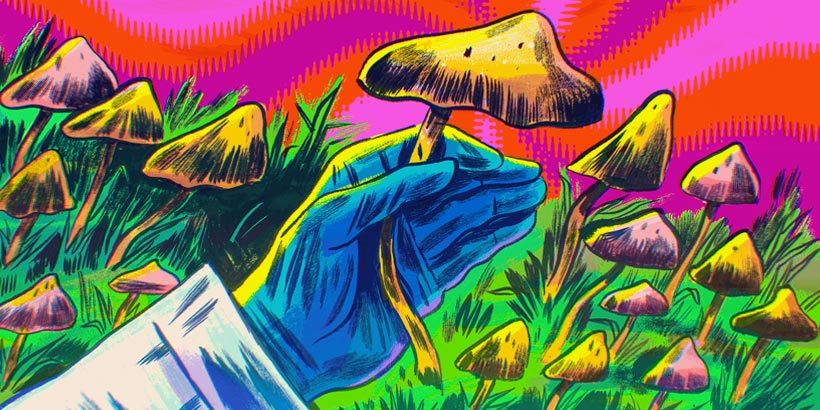
When it comes to progressive laws about magic mushrooms, the distinction between decriminalization and legalization is extremely important to understand. Some states have legalized magic mushrooms, while others have merely decriminalized them.
First, it’s important to understand that both decriminalization and legalization make it harder for users of magic psilocybin mushrooms to be arrested for possession. For the most part, it remains illegal to distribute large amounts of mushrooms under both legalized and decriminalized models. Decriminalization and legalization laws typically only deal with possession.
Legalization is the more progressive of the two methods of making it harder for citizens to get in trouble for possessing a drug. In countries or jurisdictions where magic mushrooms are completely legal, users face no kind of penalties for possessing any personal amount. Possessing huge amounts of psilocybin mushrooms can still carry penalties, even despite the legalized status of the drug.
On the other hand, decriminalization simply means that users cannot face criminal penalties for personal possession of a drug. In many jurisdictions, possession under this legal framework carries a statutory penalty. Think of it like getting a speeding ticket. Possession is still illegal in the broadest sense, but you don’t face criminal penalties for breaking this law. Violators of magic mushroom drug law in decriminalized jurisdictions generally face fines.
In some jurisdictions, violation of certain drug laws can carry mandatory treatment for drug dependency. This is relatively rare, but states like Portugal institute a policy like this for their full drug decriminalization model.
If you are interested in trying magic mushrooms, be sure to have a nuanced understanding of the nature of the law in your local jurisdiction. Although it might seem like a nuanced distinction, decriminalization and legalization are two very different approaches to undoing the criminalized status of magic mushrooms.
The United States
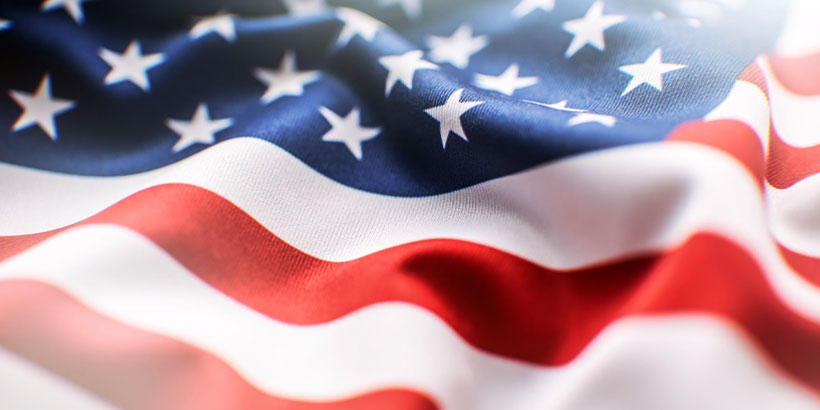
Magic mushrooms, psilocybin, and psychedelics are illegal across the United States. The United States follows the Comprehensive Drug Abuse Prevention and Control Act. That act lists psilocybin (the chemical) and psilocybin-containing mushrooms (magic mushrooms) as Schedule I substances.
Because magic mushrooms are Schedule I substances, the United States considers them to be drugs with high potential for abuse, no accepted medical benefits, and extremely unsafe to use even with medical supervision.
Certain states or cities have announced their own psilocybin-related policies that go against the federal act, however.
In New Mexico, it’s legal to purchase Psilocybe spores and grow your own magic mushrooms, for example. New Mexico is home to a recognized religious organization called the Oratory of Mystical Sacraments, which uses magic mushrooms in ceremonies.
Certain cities have proposed legalizing magic mushrooms. Denver, Oakland, Chicago, and Santa Cruz, for example, have announced various types of magic mushroom decriminalization. In these four cities, someone who possesses or consumes magic mushrooms may not face criminal charges. Not all of these cities technically had the power to decriminalize magic mushrooms, although they did vote to make magic mushrooms the lowest priority for local police.
Oakland: Oakland passed a policy requiring law enforcement to end the investigation and prosecution of anyone possessing psychedelic mushrooms and peyote, making Oakland one of America’s first cities to pass a magic mushroom-related law.
Denver: It’s still illegal to possess and sell magic mushrooms in Denver and everywhere else in Colorado. However, the city has instructed police to make these cases their lowest priority. Denver city authorities cannot use city resources to prosecute minor crimes related to psilocybin. It’s not legalization, but it’s a step towards it.
Chicago: Chicago is the largest city in America to introduce magic mushroom-related changes. Chicago passed a resolution similar to Denver, making magic mushroom-related cases the lowest priority for law enforcement. This measure was unanimously passed by city council, making it an official city ordinance – which is more powerful than the measure passed by Denver.
Santa Cruz: The city of Santa Cruz, California introduced a decriminalization resolution for magic mushrooms that works similar to the model in nearby Oakland. It’s still illegal to possess, cultivate, use, or cell psilocybin, although magic mushroom cases have the lowest priority with local law enforcement. Santa Cruz’s measure contains an exception, however, for anyone possessing a ‘commercial’ amount of psilocybin mushrooms. Someone with a large amount could face federal penalties.
As pointed out by Merry Jane, 100+ cities across the United States have introduced similar reforms. The four cities above have already passed measures, although more decriminalization could be on the way.
Canada

Canada largely follows the UN Psychotropic Substances Act of 1971, although it enforces it much differently than other countries.
Canada classifies psilocybin-containing mushrooms as Schedule III drugs, which means they pose some risk to public health in some situations. Because of its less severe status, the penalties for magic mushroom-related crimes are lower in Canada than in the United States.
It’s also legal for Canadians to buy spores, pre-inoculated grow kits, or pick fresh mushrooms growing wildly. However, it’s illegal to possess dried magic mushrooms.
Despite the official ban on magic mushrooms, Canada has a relaxed attitude towards the substance. Some Canadian businesses openly sell magic mushroom chocolates, candies, teas, and extracts, for example.
Canada also has an exception on magic mushrooms used for research or clinical trials. Today, research on magic mushrooms is ongoing at labs across Canada.
For all of these reasons and more, some of the world’s leading magic mushroom companies, including Champignon Brands, Mind Medicine, and Cybin, are based in Canada.
These companies have appealed to Health Canada to allow people with medical conditions to take psilocybin legally, and they plan to continue fighting for countrywide legalization. Canada’s magic mushroom laws could be changing very soon.
The United Kingdom

The United Kingdom uses the Misuse of Drugs Act to enforce magic mushroom laws across the country. This act largely follows the UN’s Psychotropic Substances Act from 1971. You are not permitted to use, possess, or sell psilocybin-containing mushrooms in the United Kingdom.
Like the United States, the UK has placed magic mushrooms in its most restrictive category, Class A, which means mushrooms are treated the same as meth, cocaine, and heroin.
Many have criticized the UK’s treatment of magic mushrooms, and there’s a growing push to decriminalize magic mushrooms across the UK. In a recent parliamentary meeting, a drug safety expert from Bristol University told MPs that categorizing magic mushrooms as Class A drugs was “absurd” because the chance of harm and abuse was significantly lower than legal or less strictly controlled substances.
MPs continue to review the UK’s drug policy, and it’s possible that the UK could decriminalize magic mushrooms (or even MDMA) in the near future.
The Netherlands

The Netherlands is known for its lax drug laws. All drugs are technically illegal in the Netherlands, although the Netherlands emphasizes research-backed approaches to drug regulation.
The Netherlands separates most psychoactive drugs into two categories, including hard drugs (heroin, cocaine, and meth), or soft drugs (cannabis, peyote, salvia, and psilocybin mushrooms).
In 2008, however, the Netherlands shifted its drug policy. The country reclassified psilocybin mushrooms as hard drugs. The law passed without much fanfare or protest. That law, however, did not extend to magic mushroom mycelium or spores. Today, many ‘smart shops’ in the Netherlands continue to openly sell magic mushroom mycelium and spores, benefiting from this loophole. You can buy magic truffles, mushroom spores, grow kits, liquid peyote extracts, and even a modified version of LSD (1P-LSD) legally in the Netherlands.
The Netherlands is also home to several psychedelic retreats. These retreats allow customers to enjoy a psychedelic experience in a therapeutic setting, guided by a professional therapist.
Contrary to what many expect, magic mushrooms are illegal in the Netherlands, although the country has more relaxed drug laws than most other European countries.
Brazil

When you check magic mushroom legalization maps, you’ll notice that magic mushrooms appear fully legal in Brazil. That’s not technically true, although Brazil has some of the most tolerant magic mushroom policies in the world.
Brazil’s relaxed magic mushroom policies are linked to its indigenous populations. Brazil’s indigenous peoples have consumed ayahuasca and similar psychedelics for centuries. These groups have fought the government for their right to continue engaging in psychedelic-related ceremonies.
Because of these battles, the government of Brazil has legalized ayahuasca, although the law also allows for the use of other psychedelics.
Today, it’s safe and easy to buy magic mushrooms in Brazil. You can buy and order magic mushrooms online, for example, or in shops across the country. The psilocybin molecule is technically illegal in Brazil, mostly because of UN policies, although it’s legal to possess, cultivate, and distribute magic mushrooms and other psychedelics.
Mexico

Mexico has similar laws to Brazil: because of indigenous populations, it’s legal to use magic mushrooms, peyote, and similar psychedelics in certain situations.
Officially, the psilocybin molecule and all types of magic mushrooms are illegal in Mexico. However, law enforcement has a relaxed attitude towards magic mushrooms. Mexico also has an exception to its drug laws calls Article 32, which allows indigenous tribes to use mushrooms and peyote in certain ceremonies.
Because of these semi-relaxed laws, Mexico is home to many psychedelic retreats. People have traveled to psychedelic resorts in Mexico since the 1950s. New York banker Gordon Wasson famously published an article called Seeking The Magic Mushroom, which detailed his journey to Mexico to experience psychedelics for the first time. Mexico’s psychedelic industry has been booming ever since.
Today, some people visit psychedelic retreats in Mexico for similar reasons: to experience it for the first time. Others visit to seek relief from addiction, cognitive issues, and more.
Jamaica

Jamaica is one of the few countries where magic mushrooms are fully legal. In Jamaica, it’s legal to cultivate, possess, and sell both the psilocybin molecule and magic mushrooms.
Today, many Jamaican businesses offer psychedelic retreats, and the magic mushroom industry is a boon to Jamaican tourism. You can openly purchase magic mushrooms on the streets of Negril and other Jamaican resort towns. Just like with Mexico, some visit psychedelic retreats to experience magic mushrooms for the first time, while others seek specific treatment for cognitive issues.
Employees of Gwyneth Paltrow’s company Goop famously visited a psychedelic retreat in Jamaica, filming the visit for the Goop Netflix series. Some resorts charge up to $11,000 for a one-week psychedelic vacation.
Austria

In January 2016, Austria became one of the first countries in Europe to officially decriminalize magic mushrooms, although magic mushrooms are not fully legal across the country.
Anyone caught possessing small, personal amounts of magic mushrooms in Austria will undergo free therapy instead of being charged with a crime. Cultivating magic mushrooms is legal in Austria, as long as you do not intend to sell the mushrooms commercially.
You can legally buy magic mushroom grow kits and spores in Austria, then grow the mushrooms yourself. However, the sale and possession of large amounts of dried mushrooms are illegal.
Cambodia

Cambodia, like Jamaica and Mexico, has carved a niche in the global tourism space for its psychedelic retreats. Cambodia is a popular destination for magic mushroom researchers, and a broad spectrum of magic mushrooms grow naturally in Cambodia.
Some species of magic mushrooms were first discovered in Cambodia, and some of the world’s largest magic mushrooms can be found in the jungles of the country.
Although magic mushrooms naturally grow all over Cambodia, they’re still illegal at a federal level. The psilocybin molecule and magic mushrooms are both illegal. Penalties are less severe than in neighboring countries like Thailand, and most can escape penalties with a small bribe.
Tourists in Cambodia can easily buy magic mushrooms through markets, bars, shops, and roadside vendors. You can buy shroom shakes throughout Cambodia, for example. If you are visiting a tourist town in Cambodia, and you appear to be a tourist, then you will almost certainly be offered drugs – including magic mushrooms.
Czech Republic
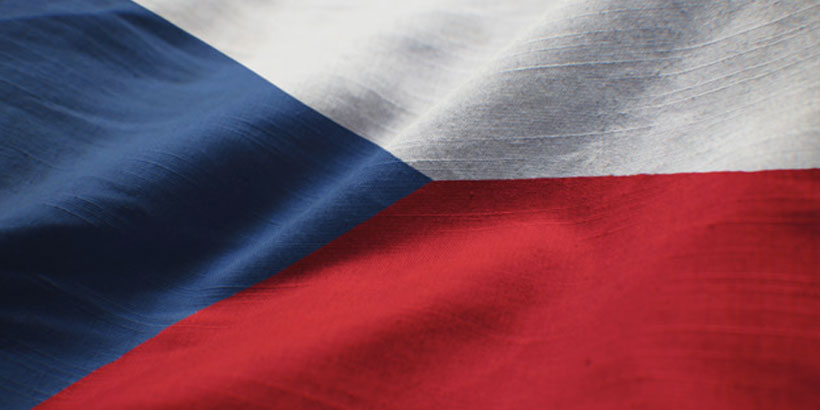
Like the Netherlands, the Czech Republic is known for a relatively relaxed attitude towards certain drugs. Such is the case with magic mushrooms. The psilocybin molecule is illegal in the Czech Republic, although magic mushrooms are decriminalized. You can consume and grow your own magic mushrooms.
Commercial sale of magic mushrooms is illegal, and someone with large quantities of magic mushrooms may be punished. Certain offenders may also be required to attend addiction therapy classes, depending on the situation.
India

Magic mushrooms are illegal in India, although enforcement is reportedly weak. Many local police departments are unable to determine the difference between psilocybin mushrooms and ordinary mushrooms, and some police are unaware the mushrooms are illegal. As is the case with many developing parts of the world, India’s magic mushroom laws depend on which police officer you’re speaking to.
India’s magic mushroom laws also vary depending on your location. Magic mushrooms are prominent in certain parts of the country, for example. In states like Tamil Nadu and Kerala, you can easily buy magic mushrooms at roadside vendors, markets, and online stores. In other parts of the country, like India’s larger cities, magic mushroom enforcement is more formally regulated.
Thailand

Thailand had infamously harsh penalties against magic mushrooms until 2017, when laws finally changed. In 2017, Thailand changed its classification for magic mushrooms. Before 2017, Thailand assumed anyone with magic mushrooms was intending to sell those mushrooms. Today, Thailand classifies certain naturally-occurring drugs as Category 5, which means they have lighter penalties and shorter prison terms than harsher, more dangerous drugs.
Magic mushrooms, kratom, cannabis, and psilocybin are all considered Category 5 substances, while drugs like cocaine and heroin are Category 2 substances. Being caught with a Category 5 substance will likely lead to a small fine or penalty, while being caught with a Category 2 substance could lead to a death sentence of life in prison in a country that is infamously tough on drugs.
Despite the harsh stance towards drugs, magic mushrooms are easy to obtain in many parts of Thailand – especially tourist areas. Vendors sell shroom shakes, happy shakes, or trippy shakes openly in places like Koh Samui, for example. If you walk around Thailand and look like a tourist, you may be offered mushrooms or cannabis without ever asking.
Spain

Spain has decriminalized the possession and consumption of Psilocybe mushrooms, although it’s still illegal to grow or sell magic mushrooms yourself. The psilocybin molecule is also illegal in Spain.
Technically, magic mushrooms are illegal in Spain, although they remain prominent in many parts of the country – especially tourist areas or party destinations. It’s relatively easy to find magic mushrooms in recreational drug hubs like Ibiza and Barcelona, for example, and you can even find Spanish psychedelic retreats online.
You may be able to find magic mushroom spores or grow kits in Spain, although prosecution depends on local law enforcement. Generally, if you intend to grow or distribute for commercial purposes, you could face further penalties, while those using for personal reasons should be okay.
Portugal

Portugal was one of the world’s first countries to overturn magic mushroom laws. In 2001, Portugal passed a law decriminalizing the possession of all drugs – including cannabis and magic mushrooms.
Today, Portugal does not have an open policy on magic mushrooms, and you can still face penalties for producing and distribution psychedelic mushrooms. Individuals caught with magic mushrooms for personal use should not face penalties, although they may be asked to attend rehabilitation or addiction therapy in some situations. Meanwhile, someone caught repeatedly violating drug laws could face more severe penalties in Portugal.
Laos
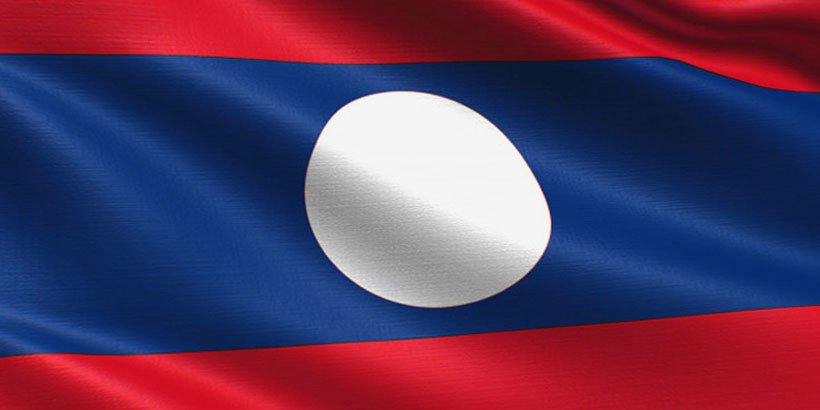
Laos officially has a tough stance against magic mushrooms, although in practice laws against mushrooms are loosely enforced. Magic mushrooms and the psilocybin molecule are illegal in Laos, and offenders could face life in prison or even execution – especially if caught with large amounts of magic mushrooms.
Generally, however, anyone caught with personal amounts of magic mushrooms is unlikely to face severe penalties. Magic mushrooms grow naturally throughout Laos, and many vendors sell magic mushrooms in the forms of shakes or dried products.
Italy

Italy’s magic mushroom laws match somewhat with UN measures passed in 1971. The psilocybin molecule is illegal in Italy, although magic mushrooms are decriminalized. If caught with magic mushrooms for personal use, you are unlikely to face further penalties. However, some Italians may lose their driver’s license or be required to attend addiction counseling.
It’s legal to buy, sell, and possess grow kits and spores in Italy.
Israel

Israel has banned the psilocybin molecule and magic mushrooms, although it’s legal to buy spores and grow kits for research purposes.
Because of the research ‘loophole’, Israel has become a hub for magic mushroom research – similar to Canada. The country was the first to approve an MDMA treatment program for PTSD suffers, for example, and researchers in Israel continue to explore medical applications of psychedelics for depression, anxiety, and other conditions. Approximately 10% of Israelis suffer from PTSD.
Overall, Israel has officially banned magic mushrooms and the psilocybin molecule, although things could change in the near future as more research verifies the benefits of magic mushrooms.
Iceland

It’s illegal to buy, use, or possess the psilocybin compound and dried Psilocybe mushrooms in Iceland, and the country mostly follows UN regulations. However, magic mushrooms grow naturally in Iceland, and the country does not ban people from picking and possessing fresh magic mushrooms.
Many Icelanders take advantage of this policy, gathering magic mushrooms in fall (September to October). You can find magic mushrooms in gardens, yards, fields, and wilderness areas throughout Iceland, and it’s legal for Icelanders to pick and consume these mushrooms.
The British Virgin Islands
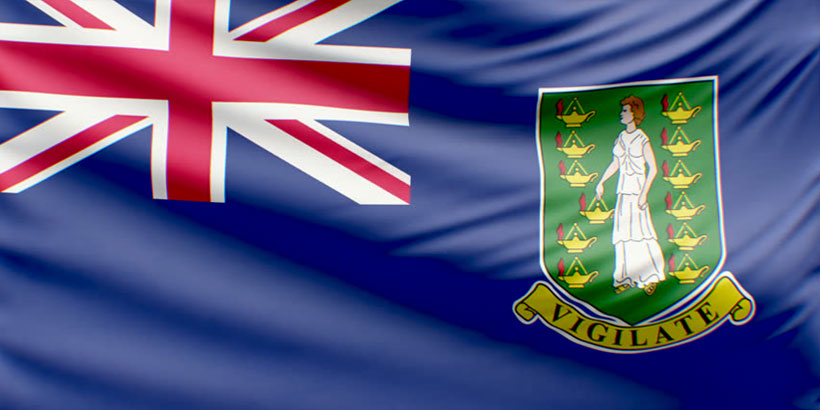
The British Virgin Islands are technically part of the United Kingdom, although the territory is much more relaxed towards magic mushrooms than the mother lands.
The psilocybin molecule is illegal in the BVI, although it’s legal to grow, pick, and possess Psilocybe mushrooms, and laws are relaxed compared to other countries. The BVI is home to several species of magic mushrooms, and they grow prominently across the islands.
It’s illegal for shops to sell magic mushrooms in the BVI, although this law is loosely enforced – especially in tourist areas. Smaller islands like Tortola are renowned for their full moon parties, for example, and shrooms are openly sold in these areas.
Peru

Peru has a long history of psychedelic usage. Indigenous tribes in the Peruvian Amazon have used ayahuasca for centuries, for example, and psychedelics play a role in Peruvian shamanism.
Like Mexico and Jamaica, Peru has psychedelic retreats popular among tourists. Some visit these retreats to experience psychedelics for the first time, while others visit for specific cognitive or addiction therapies.
The legality of magic mushrooms in Peru is unclear, although magic mushrooms and psychedelic retreats are openly advertised across the country.
Native American Reservations in the United States
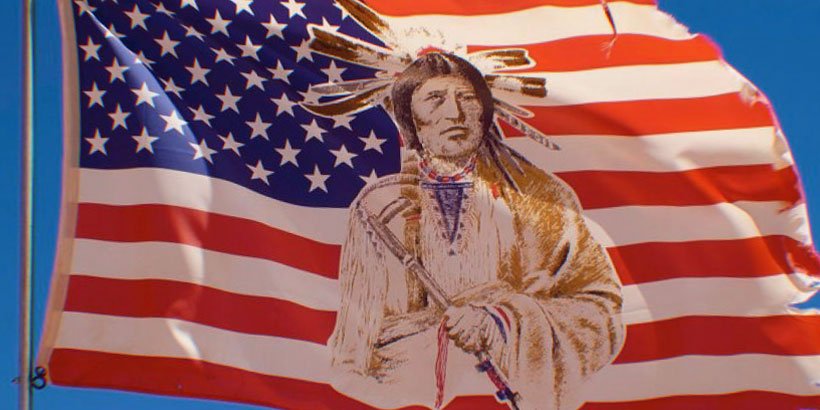
While the United States has infamously harsh drug laws, Native American reservations in the United States have a unique situation.
In the 1960s, Native American communities battled against the federal government for religious rights. Tribes argued that they should be able to use psychedelic drugs like peyote, used for centuries for ceremonial purposes.
Since the 1960s, drugs like peyote have been considered sacred and protected under law. In practice, however, the law has many grey areas: you can find reports online of police crackdowns in certain communities, for example.
In many tribes, people can legally consume peyote and other psychedelics anywhere on the reservation. Indigenous people in Arizona, New Mexico, Colorado, and Nevada, for example, are largely free to consume natural psychedelics. In other states, you have to be a member of the Native American Church to legally consume psychedelics.
Australia

It’s illegal to grow, manufacture, possess, or use magic mushrooms anywhere in Australia, although there’s a push for psilocybin legalization across the country.
Australia is home to at least 30 species of magic mushrooms, and it’s estimated that 10% of Australians have tried magic mushrooms at least once. Some Australians pick or grow their own magic mushrooms. Australian researchers are have performed some research on magic mushrooms. In 2019, 30 patients at a Melbourne hospital received psilocybin as part of a clinical trial.
New Zealand

Magic mushrooms are considered Class A drugs in New Zealand, and Kiwis caught with magic mushrooms can face a maximum of 6 months in prison and/or a $1,000 fine. Although Class A is the most serious drug category in New Zealand, there are few reports of harsh punishment against those using magic mushrooms for personal purposes.
However, shrooms grow naturally throughout New Zealand, and the country reportedly has some of the strongest naturally-growing magic mushrooms in the world. New Zealand is also home to a species of magic mushroom called Psilocybe makaraorae that cannot be found anywhere else in the world.
South Korea

It’s illegal to grow, possess, and consume magic mushrooms anywhere in South Korea. The country has an infamously harsh stance towards cannabis, magic mushrooms, and most other drugs. Drugs are hard to obtain in South Korea, with users paying 10x higher rates than in most other countries.
There are some reports of psychedelic mushrooms growing naturally on the island of Jeju, which has a more tropical climate than the South Korean mainland. However, magic mushrooms are officially illegal across South Korea.
Germany

Germany has banned the use of magic mushrooms as a drug. Germans are not permitted to use psilocybin, magic mushrooms, or any parts of the magic mushroom plant for drug-related purposes.
Germany recently amended its Executive Order 698, passed in 1993, to include more specific parts of plants. That means Germany doesn’t have the ‘mycelium’ or ‘grow kit’ loophole found in many other countries.
Toady, Germany’s Executive Order 698 states that, “Plants, parts of plants as well as animals and parts of animals that contain psilocin or psilocybin in processed or unprocessed state as well as fruits, mycelia, seeds, spores and cell cultures that can be used to grow psilocin or psilocybin producing organisms are illegal if a use as drug is intended.”
Ireland

The government of Ireland passed the Misuse of Drugs Act in 1977, then added to that act in 2006 by passing more specific language referring to magic mushrooms and psychedelic fungi.
Up to 2006, magic mushrooms were mostly legal throughout the Republic of Ireland. In 2005, an Irish man fell to his death after suffering a psychotic reaction linked to magic mushrooms. In response, the government passed new laws against psilocybin. Since 2006, it has been illegal to grow, consume, or possess magic mushrooms in Ireland.
France

It’s illegal to grow, possess, or sell magic mushrooms in France. You cannot pick naturally-growing mushrooms in the world, nor can you purchase psilocybin mushroom growing kits.
France has classified magic mushrooms as a narcotic since 1966, and the possession, use, transportation, sale, and collection of magic mushrooms is illegal to this day.
Norway

Magic mushrooms are illegal in Norway, although there are some ‘loopholes’. For example, Norwegian mushrooms that contain psilocybin are not regarded as narcotic drugs.
Magic mushrooms grow naturally throughout Norway, and they can easily be harvested “on grassy sites in most parts of Norway from the middle of August to the middle of October”, according to one research paper from the University of Oslo.
Finland

Psilocybin and magic mushrooms are illegal in Finland, and they have been illegal since 2008. Finns are punished based on the quantity of magic mushrooms they possess at the time they’re caught.
Prior to 2008, magic mushrooms were somewhat permitted in Finland. IN 2008, however, the government added to its penal code, officially prohibiting Finns from growing or attempting to grow Psilocybe mushrooms.
Sweden

Certain types of magic mushrooms grow abundantly throughout Sweden, including the fly agaric mushroom and the liberty cap. However, Sweden officially considers Psilocybe to be a Schedule I narcotic, and Swedes may face harsh penalties for growing, possessing, or using magic mushrooms – including fines and jail time.
In practice, there are few reports of Swedish law enforcement cracking down on magic mushroom usage in the country, although magic mushrooms are officially illegal.
Russia

Russia is infamously tough on drugs, and magic mushrooms are illegal throughout Russia. It’s illegal to grow, sell, cultivate, use, or possess magic mushrooms and other psychedelic substances anywhere in Russia. Most CIS countries surrounding Russia have similarly tough regulations.
The Philippines
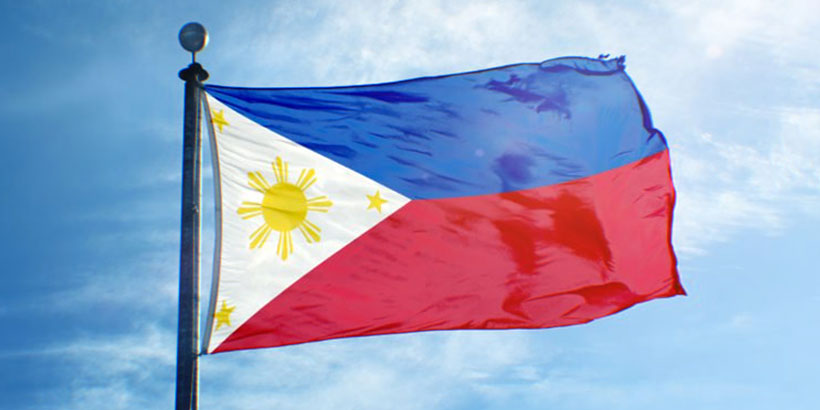
Magic mushrooms grow naturally throughout the Philippines, and they’re not officially forbidden by law – despite the country’s tough stance against other drugs.
In 2019, researchers published a report highlighting how high school students were turning to psychedelic mushrooms as an alternative to illegal drugs. Students are easily able to pick the wild mushrooms and use them as an alternative to traditional narcotic drugs. It’s possible the government will ban magic mushrooms in the future, although wild magic mushrooms are currently legal across the Philippines.
Japan

Certain types of mushrooms are considered a delicacy in Japan, including fly agaric mushrooms. Magic mushrooms were legal in Japan until June 6, 2002. Up to that date, a loophole in Japanese law banned psilocybin in extracted or pure chemical form, although it did not ban the actual mushrooms themselves. Because of this loophole, it was legal to possess or use naturally-grown magic mushrooms.
Today, Japan is home to about 30 native species of magic mushrooms, although the substances are officially illegal across the country.
China

Magic mushrooms grow naturally in parts of western China, although recreational use of magic mushrooms is not common in China. Because of their lack of popularity, magic mushrooms do not have scheduled status in China, and it’s unclear if magic mushrooms are officially illegal. It appears the government has not yet passed any laws specifically banning magic mushrooms, although China has a notoriously tough stance against other drugs.
Magic mushrooms are illegal in Hong Kong.
Final Word
Magic mushrooms are officially illegal in most parts of the world, although some countries have decriminalized or loosened regulations.
As more research gets released on magic mushrooms, we’re learning more about the potential benefits of Psilocybe mushrooms and the psilocybin molecule – and that could mean further legalization or decriminalization for magic mushrooms worldwide.


